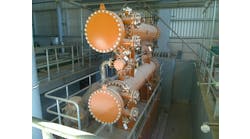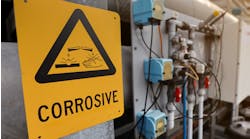A collaborative effort to improve the performance of operators now has gone beyond the formative stage and has released the results of its initial research project. In mid-April, the Center for Operator Performance (COP), Dayton, Ohio, revealed findings of a study it had commissioned on the effectiveness of decision-making exercises.
The center, formally chartered last May, was created to look at the role of human factors in the control of process plants and related units such as pipelines — in areas such as operator training, interface and control room design, and procedures. Much of the research in the field has focused on military and aerospace applications. While some groups have targeted specific issues related to process control, there’s a lack of rigorous research and quantitative results on many factors that affect operator performance, explains Lisa Via, technical director of Beville Engineering, Dayton, and industrial liaison for COP.
The center brings together operating companies and control system vendors. The membership roster now includes four operating companies — Flint Hills Resources, Marathon Petroleum, NOVA Chemicals and Suncor Energy — and two vendors — ABB and Emerson Process Management. A couple of other firms may join shortly, says Via. The center also has two permanent members — Wright State University and Beville, both of which have human-factors-engineering expertise. The 2:1 ratio of operating companies to vendors is deliberate and will be maintained on the center’s board as membership grows, to ensure that operating companies play the key role in the project selection process, notes Dave Stobhar, principal human factors engineer at Beville and one of the driving forces in the founding of COP. Industrial membership with board representation costs $50,000/yr. and requires a two year commitment. Membership (at lower or no cost) is open to third parties, such as simulator makers, as well as government agencies and trade associations.
“High cost and high risk decisions are being made in the absence of industry-specific data… Since no single company can afford to tackle these issues on its own, it made sense to combine our resources into one tightly focused entity,” noted Stobhar when COP was established.
Operators certainly should welcome the initiative. Many must contend factors that can make their jobs harder and can compromise their performance — including: Poor Control Room Environments (www.ChemicalProcessing.com/articles/2008/064.html), Responsibility for an Extensive Number of Loops (www.ChemicalProcessing.com/articles/2005/502.html), Frequent Alarms Floods (www.ChemicalProcessing.com/articles/2008/019.html), Confusing Control System Interfaces (www.ChemicalProcessing.com/articles/2006/041.html), and Lack of Access to Best Practices and Procedures (www.ChemicalProcessing.com/articles/2007/121.html).
The first research project that COP sponsored looked at the role that interactive decision-making exercises in realistic simulated environments could play in improving operator performance. The just-released findings indicate that such exercises are effective training tools and can help to enhance not only individual performance but also that of the team (by, for instance, clarifying what information should be sent to whom). COP member companies will follow-up by tailoring such exercises to their particular operations, says Via.
Two other projects are underway — on color usage in graphic displays for process control, and simulator effectiveness — with results likely to be presented at the center’s October meeting. Prospective topics for the next projects include alarm actuation rate, early event detection, design of interfaces for hand-held devices, and what operators in 2020 will need. Eighteen other ideas for potential research are listed on the Center’s website (www.operatorperformance.org).
Latest from Reliability & Maintenance
Latest from Reliability & Maintenance

